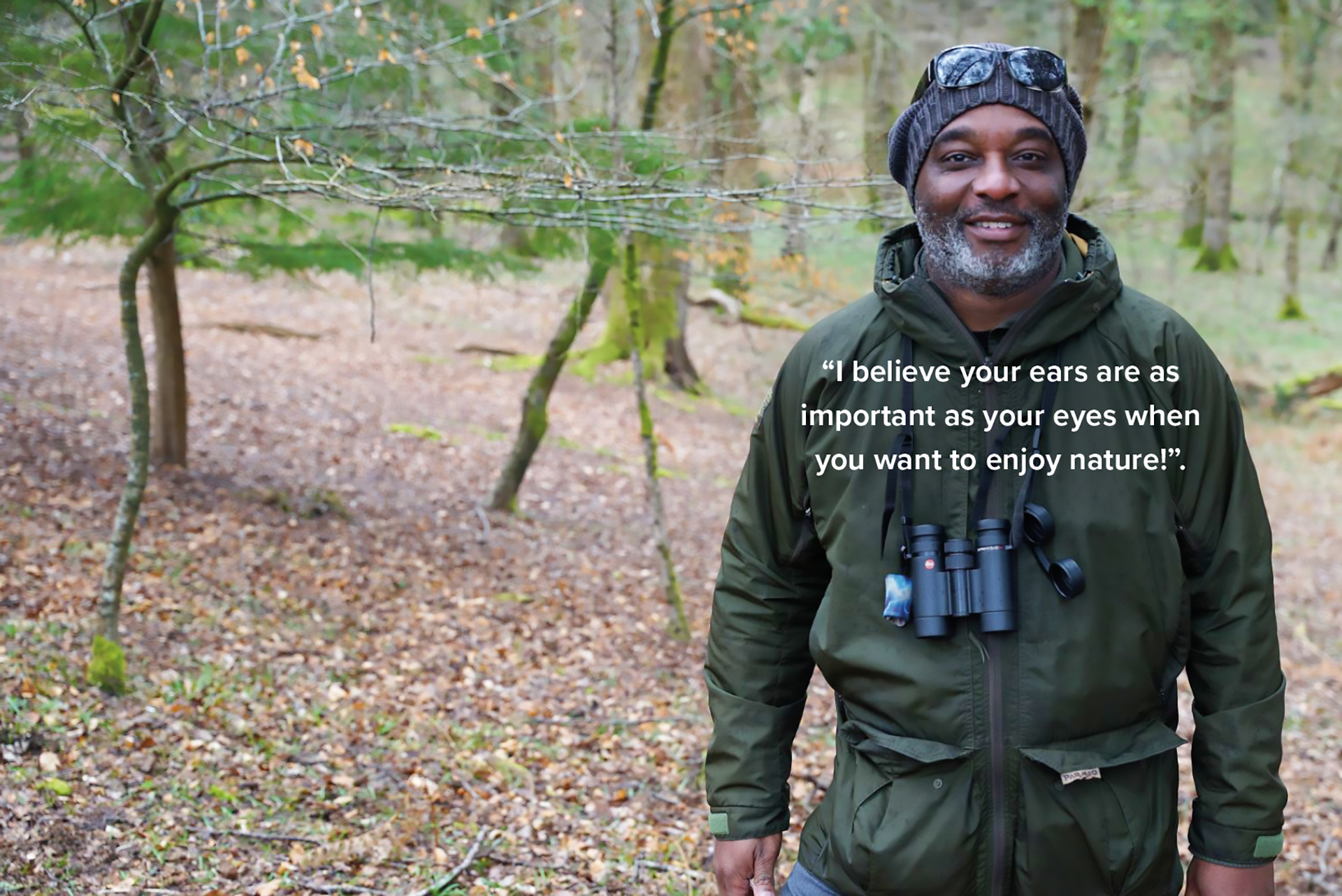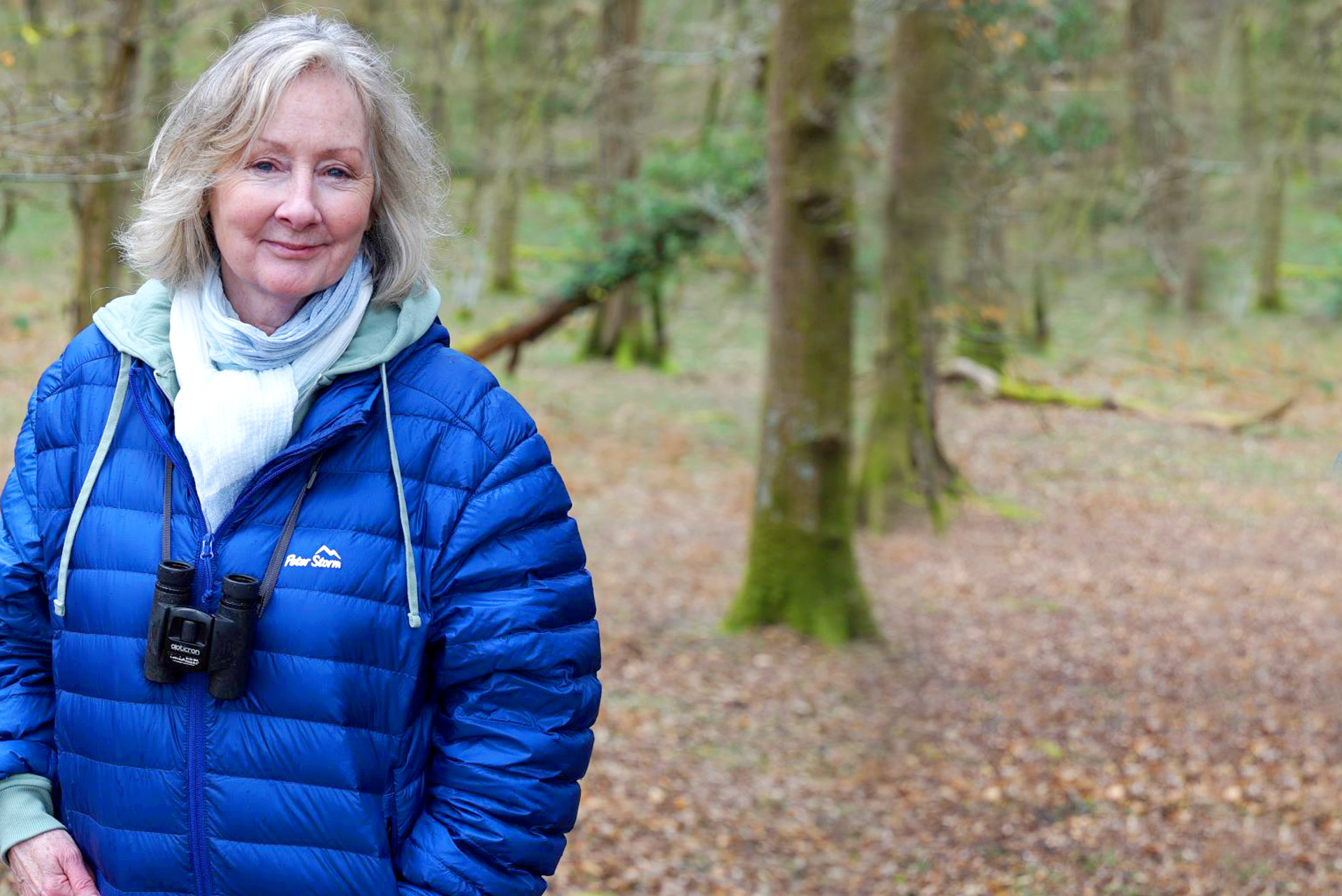1. Most people can hear sounds of up to 20,000 Hz, however this can be impacted by how well we protect our hearing and with age.
If you’d like to put your hearing to the test …
Play birdsong Online hearing test

David is a birdwatcher and author, and is particularly interested in getting those who live in cities to engage with the environment through birding. He is Vice President of the Wildfowl & Wetlands Trust and a regular on TV and radio, including BBC’s ‘Springwatch’.
David has been deaf in one ear after catching mumps as a child and now wears hearing aids which he describes as “my ear binoculars”.
“In my world, I see people struggle to hear birds and wildlife. And I believe your ears are as important as your eyes when you want to enjoy nature!”.
Use the button below to read David’s full story.
Listen to four different birds commonly known for their high-pitched songs.
Just press the 'play' button on the video.
Caution: Audio needs to be at a safe listening level. Make sure to have your volume control set to 60% (60 dB) or less.
If you feel like you are missing clarity in the different birdsongs, it might be worth taking our free, five-minute online hearing test.

As a Wildlife Trust employee, being able to hear clearly is so important to Caroline. She had been struggling with her hearing for around 10 years when she developed tinnitus (a ringing in the ears) following the death of her husband.
Thanks to our Give Back Programme, Caroline wears Oticon Intent™ hearing aids which have helped change her life.
“Getting the right help for my hearing was so important to me,” Caroline says. Now I can hear everything – from the gregarious chatter of goldfinch and long-tailed tits to the return of spring’s full orchestra of dawn choruses and tuneful nightingales.”
Find out more about Caroline’s hearing loss journey.
Lifestyle, ageing, illness and medical conditions can all cause deafness and hearing loss. Losing the ability to hear is not an inevitable part of getting older; it can be prevented.
People tend to ignore the signs of hearing loss for years before finally seeking help – on average, for 9–10 years. It’s often friends and family who’ll notice a change in your hearing before you do.
Research has found that people who take action on their hearing feel more empowered, are happier, have better relationships, increased self-esteem and a more active social life.